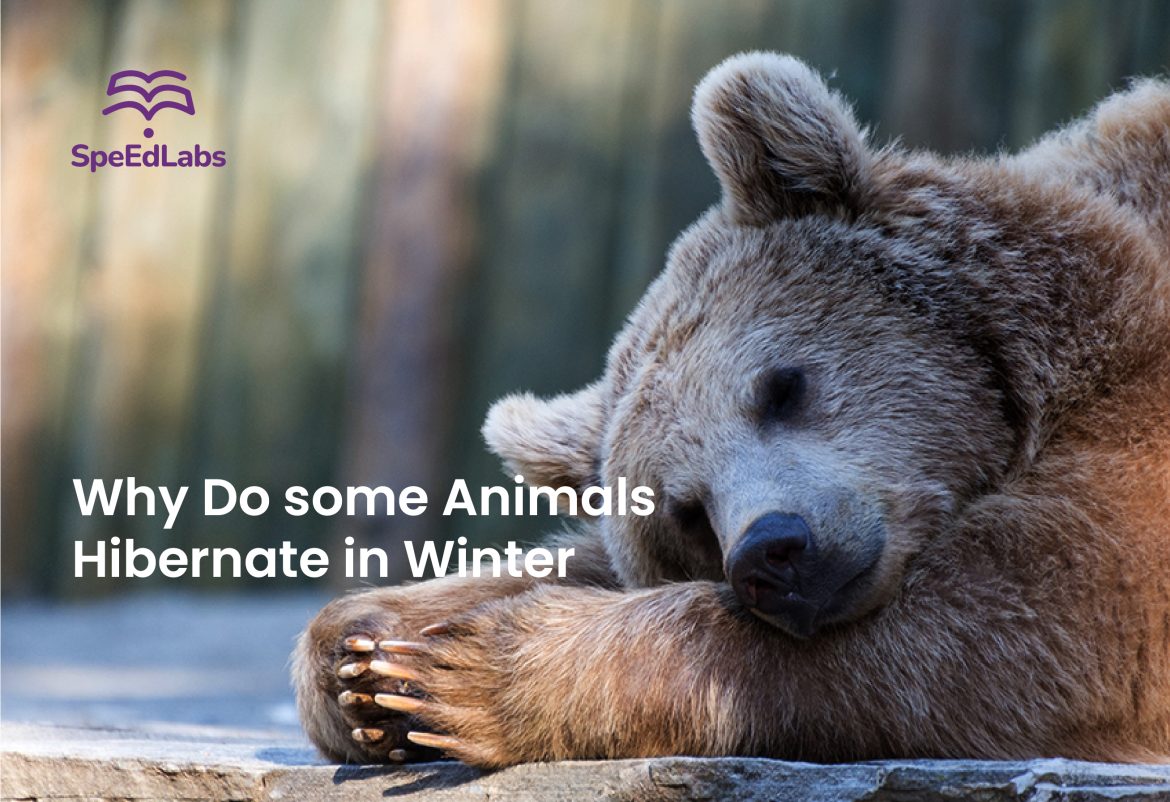Hibernation is a necessary survival strategy for some animals. Find out how they sleep and which ones do it.
The word “hibernate” comes from the Latin verb “Hibernare,” which means “to pass the winter.” Of course, curling up in bed seems more comfy than anything else during the chilly winter months. Animals are not an exception to this rule. In order to survive the long winter, they too must unwind. Certain animals go into a long slumber to survive the long winter months without food.
This occurs as a result of having very little food to eat. Hibernation, however, is a significant process that alters an animal’s metabolism and heart rate. An animal’s body temperature drops during this time, its heart rate decreases, and its body almost turns cold. What causes animals to hibernate, then? Is it merely a way for them to endure the winter? This article will explain why some creatures hibernate throughout the winter.
Animal Hibernation: What are the Causes?
So why do certain creatures hibernate during the winter? Different animals have different answers to this question. Frogs have an entirely different purpose for hibernating than bats do. Bats do it because brown fat helps them store energy in their bodies. So you can see that while some species hibernate, others do not. Here, we’ve covered a number of causes for animal hibernation.
-
Deficiency of Food in Winter
If you’re wondering why animals hibernate, the answer is lack of food. Animals sleep during the winter months for reasons other than merely the freezing cold. The reason for this is that they lack sufficient nourishment to endure the worst winter months.
One of the main reasons why animals feel the need to survive without food during the cold months is that they do not receive enough insects to consume. In order to wake up, animals have developed the habit of hibernation.
They begin saving their food once the winter is gone. However, a few animals do occasionally awaken, eat, and then fall back to sleep.
-
Obtaining Energy is Essential for Endothermic Animals
The answer to the question as to why animals hibernate is because of severe weather. While we already know that one of the causes of animals’ winter slumber is a shortage of food, other creatures may hibernate for a variety of reasons.
Warm-blooded mammals, or Endothermic mammals, are believed to require a steady source of energy to function. However, they notice a lack of that energy in the winter. Hibernating can help animals regain their energy so that their bodies can start functioning normally the rest of the year.
Wilson claims that Endothermic animals have a tendency to overeat and gain weight, and also they rely on the extra fat in their bodies to sustain themselves while they are hibernating. As we’ve already mentioned, animals that hibernate can do this for a variety of reasons.
-
Helps to Build Brown Fat for More Heat
Mammals in particular have a tendency to store brown fat on their bodies when they hibernate. Mammals like bats develop brown fat on their shoulders and backs. Brown fat is stored in the bellies of some mammals.
Since animals that hibernate in the winter tend to have a slower metabolism, this brown fat is essential for them.
Animals that hibernate in the winter can generate more body heat due to their body fat, which also gives them energy when they awaken from a prolonged sleep.
-
Re-energizing the Body
Animals must sleep throughout the winter to survive. Animals typically consume a lot and store fat in their bodies before hibernating, as we’ve mentioned earlier. The animals’ metabolism slows down during hibernation, which causes the food to take longer for them to digest. During this time, they receive essential energy that allows them to have the strength to endure the long, chilly winter days.
-
Frogs Hibernate to Maintain a Stable Body Temperature
Frogs are probably the most commonly named animal that hibernates when people ask. School kids generally read about how frogs hibernate. But have you ever considered the reasons behind frogs’ hibernation?
They do, however, enter a deep sleep while winter is around for an entirely different purpose. Frogs hibernate, unlike bats, woodchucks, or ground squirrels, because of their decreased body heat.
As their body temperature drops, frogs tend to become much less active. Therefore, they must hibernate in order to maintain a stable body temperature.
-
Must Get Active in Summer
There is also another reason for hibernation. Every animal that hibernates in the winter typically experiences some changes. For instance, their respiration and heart rate drop to a specific level, their metabolism slows, and their body temperature rises.
Some animals develop body fat. These changes might occasionally be so extreme that they seem lifeless. However, as the temperature rises and they emerge from their hibernation, their energy level increases, enabling them to hunt effectively. But many of you might have a question in your mind.
Do rabbits hibernate? The answer is no. The ability of rabbits to survive harsh winter circumstances is extremely good.
Hibernation is not equivalent to a warm winter night’s sleep. It indicates that an animal enters a deep sleep to help it get through the challenging winter days. It serves as a defence mechanism because of this. Every animal’s hibernation process is unique, though. Some notable bear species wake up from their sleep, eat some food, and then go back to sleep, while other animals enter a deep sleep and appears to be dead.
Simply said, animals go through a particular process while they hibernate, that causes unique physical changes that aid in their survival.
Also published on Medium.
